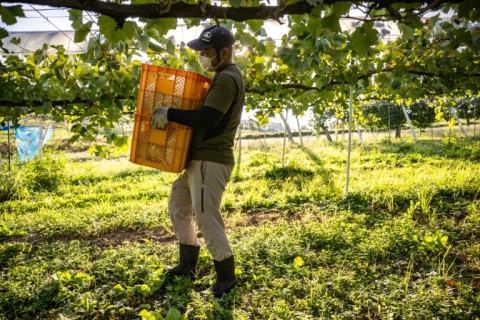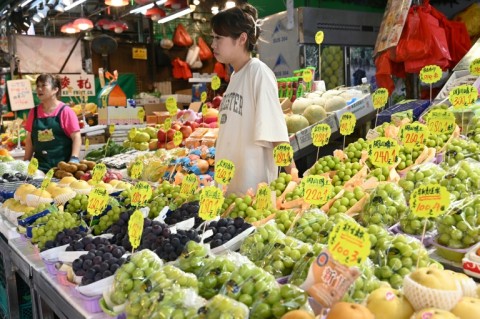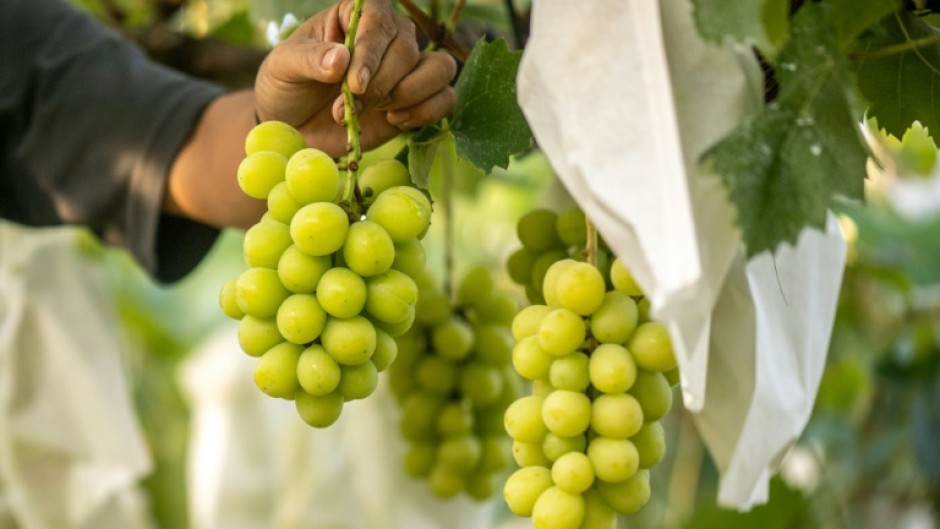TOKYO - The variety of juicy grape that Yuki Nakamura is harvesting as the sun rises over his farm took scientists 33 years to develop and can sell for $100 a bunch in Tokyo department stores.
But in the view of Japanese farmers and officials, the chunky emerald-green Shine Muscat, one of many fruit varieties created by Japan, has been "stolen" by China and South Korea.
"The great things about Shine Muscat are that each grape berry becomes big, it's easy to grow, and it's sweet but not too much," Nakamura told AFP in the country's central Nagano region.
But waiting on the shelves there -- and online -- are copycats grown by China and South Korea that are nearly the same as Shine Muscat grapes, but much cheaper.
According to the Japanese government, China and South Korea took Shine Muscat seedlings out of Japan and grafted them onto local vines to produce fruit that looks and tastes -- almost -- as good.

Customers definitely "look at the prices", said Sau, a fruit vendor in a busy market in Hong Kong where Japanese Shine Muscats often cost two or three times as much as their Chinese counterparts, even with a weak yen making Japanese imports cheaper.
"But you can taste the difference," the vendor, who only gave her first name, told AFP.
"Japanese Shine Muscats are refreshing, sweet, and have stronger grape flavour. Chinese ones are sweet, but lack the grape flavour."
The Chinese Shine Muscat copycats were discovered in 2016, a decade after the variety's registration in Japan, when the National Agriculture and Food Research Organization (NARO) investigated samples.
But Japan cannot stop China or South Korea from growing the fruit because Tokyo -- some say naively -- failed to register the variety overseas within the six years required under international rules.
This was confirmed by South Korea's agriculture ministry, which told AFP that the "current situation permits Shine Muscat grapes to be grown and distributed here without royalty requirements".

Chinese authorities did not respond to requests to comment.
Japan tightened its rules in 2020, prohibiting registered seeds and seedlings from being taken abroad.
Violators can face a prison term of up to 10 years or a fine of up to 10 million yen ($69,000).
Japan is also making efforts to better protect domestic growers against foreign copycats.

